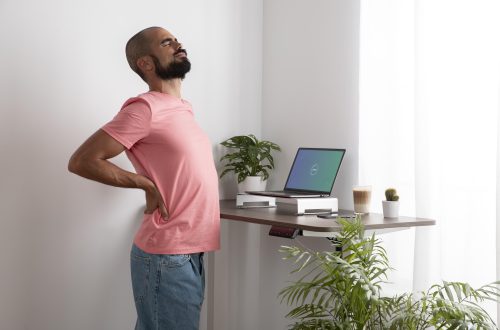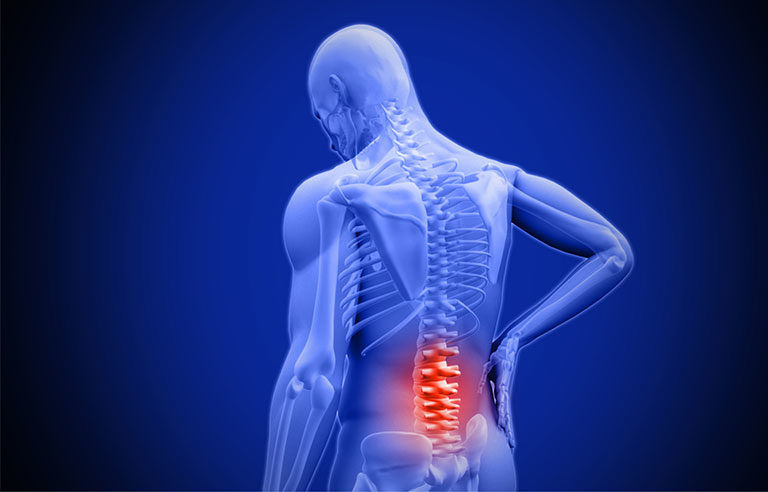Back pain is one of the most common health problems affecting people of all ages. Whether caused by poor posture, muscle strain, long hours of sitting, or underlying health issues, it can disrupt daily life and reduce productivity. If you’ve been struggling with back discomfort, you may be wondering how to relieve back pain naturally and effectively.
The good news is that many simple lifestyle changes, stretches, and home remedies can help ease discomfort and prevent future episodes. Let’s explore the best ways to find relief from back pain.
Improve Your Posture
Poor posture is a leading cause of chronic back pain. Sitting hunched over a computer or slouching while standing puts pressure on the spine and back muscles.
Tips for better posture:
- Sit with your back straight and shoulders relaxed.
- Keep both feet flat on the floor.
- Adjust your chair so your knees are at hip level.
- Avoid leaning forward for long periods.
Using ergonomic chairs or lumbar support cushions can also help maintain proper spinal alignment.
Stay Active and Stretch Regularly
Contrary to the belief that bed rest is best, staying active is crucial for back pain relief. Gentle movement keeps your muscles flexible and strong.
Effective stretches and exercises for back pain relief include:
- Cat-Cow Stretch: Improves spine flexibility.
- Child’s Pose: Relaxes the lower back.
- Pelvic Tilts: Strengthens core and back muscles.
- Walking or Swimming: Low-impact exercises that improve circulation.
Even just 15–20 minutes of daily stretching can significantly reduce pain and stiffness.
Apply Heat or Cold Therapy
Heat and cold packs are simple yet effective remedies for back pain.
- Cold Therapy: Apply an ice pack during the first 24–48 hours of back pain to reduce inflammation.
- Heat Therapy: Use a heating pad or warm towel after two days to relax tight muscles and improve blood flow.
Alternating between hot and cold therapy can also work well for persistent discomfort.
Maintain a Healthy Weight
Excess weight, especially around the abdomen, can put added strain on your spine and back muscles. Maintaining a healthy weight through a balanced diet and regular exercise reduces the risk of chronic back pain.
Focus on foods rich in anti-inflammatory properties like fruits, vegetables, nuts, seeds, and omega-3 fatty acids to support spine health.
Practice Stress Management
Stress often leads to muscle tension, which can worsen back pain. Incorporating relaxation techniques into your routine can make a big difference.
Try:
- Deep breathing exercises
- Meditation
- Yoga
- Progressive muscle relaxation
These practices not only reduce stress but also improve posture and flexibility.
Strengthen Your Core Muscles
A strong core provides essential support for your spine. Weak abdominal and back muscles can lead to poor posture and recurring pain.
Exercises to strengthen your core:
- Planks
- Bridges
- Leg raises
- Pilates
Incorporating these into your routine can prevent back pain in the long run.
Sleep Smart
Poor sleeping positions or the wrong mattress can contribute to back pain.
- Sleep on a medium-firm mattress that supports spinal alignment.
- Use a pillow that keeps your neck in a neutral position.
- Try sleeping on your side with a pillow between your knees to reduce pressure on the lower back.
Avoid Heavy Lifting (or Do It Safely)
Lifting heavy objects incorrectly can strain your back muscles. If lifting is unavoidable:
- Bend your knees, not your waist.
- Hold objects close to your body.
- Avoid twisting while lifting.
If possible, ask for help with heavier loads to prevent injury.
Stay Hydrated
Your spinal discs need water to stay flexible and cushioned. Drinking enough water daily helps maintain spinal health and prevents stiffness that can lead to back pain.
When to See a Doctor
While most back pain improves with home remedies, seek medical advice if you experience:
- Severe or persistent pain lasting more than a few weeks
- Numbness or tingling in your legs
- Pain after a fall or injury
- Difficulty controlling bladder or bowel movements
A healthcare professional can provide treatments like physical therapy, medications, or further testing if necessary.
Final Thoughts
If you’ve been asking yourself how to relieve back pain, the answer often lies in small but consistent lifestyle changes. Improving posture, staying active, managing stress, and practicing daily stretches can bring lasting relief. For chronic or severe cases, professional guidance is essential.
Taking care of your back today not only reduces pain but also improves your overall quality of life.
Read More – Does Osteopathy Work for Back Pain






